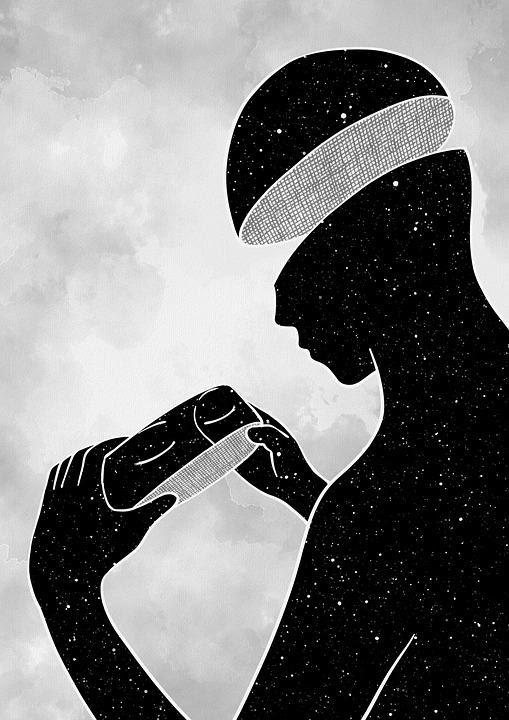
In this article we will direct our attention to a meditation exercise on loss. This meditation will prepare you for inevitable losses and loosen your attachment to things you don’t control.
When we lose something we treasure deeply we usually feel upset or angry. We think of such events as unjust and harmful. Imagine that you worked very hard all your life just to see the fruits of your labor taken away by fate. Imagine your family being taken from you before their time. Or imagine if your house and all your belongings burnt to the ground. What emotions would those events bring into your mind? You would probably feel devastated.
Stoic philosophers pondered about such events and asked questions about the nature of external things, such as other people and objects. The ancient Stoics came to the conclusion that there are things we can control and there are things we can’t control. In order to live a happy life, our thoughts and actions should follow this Stoic principle. Epictetus wrote extensively on this principle, which can be seen in his Enchiridion.
“Of things some are in our power, and others are not. In our power are opinion, movement toward a thing, desire, aversion (turning from a thing); and in a word, whatever are our own acts: not in our power are the body, property, reputation, offices (magisterial power), and in a word, whatever are not our own acts. And the things in our power are by nature free, not subject to restraint nor hindrance: but the things not in our power are weak, slavish, subject to restraint, in the control of others.”
Epictetus, Enchiridion
By knowing what is in our control and what lies outside of our control, we can imagine different situations where we lose external things; however, our actions and mindful reasoning can’t be taken from us.
The Importance of Negative Visualization
To better understand this Stoic principle, we must look at a technique called negative visualization. This technique is a mental practice where we imagine our life without all the things we currently have. For example, you can imagine the loss of every material possession you own, a rejection from others, or the death of loved ones.
One might ask, why would anyone want to imagine such horrible things? Wouldn’t that thought process harm our mental state? Why did Stoics feel the need to renounce everything external to their minds? In answer, our attachment to external things is what furthers us from ourselves. We value many external things that can ultimately lead to suffering if those things are lost. When that happens, we get further away from a healthy mindset and our potential for virtue.
According to Stoics, our happiness and stability shouldn’t depend on things that are not in our control; therefore, we should practice reducing the influence of those things for the sake of our wellbeing. The only valuable thing we have control over is our mind, and our mind is the center of our virtue. When we practice virtue and a positive mindset, our character changes and becomes stronger. The result of this change is the creation of a different, better worldview. When one’s character is virtuous, one becomes free from the harmful effects of external influences.
To reach this goal, Stoics practiced the technique of negative visualization, along with another technique called voluntary discomfort. The basic idea of both of these techniques is to imagine possible bad outcomes in order to be prepared if (or when) those situations happen. Consequently, when those situations do happen, our response will be calm and your wellbeing will not be disturbed that much. In comparison, if we don’t prepare ourselves, our response will likely be much more harmful and negative. Epictetus reminds us of the benefits of such a practice:
“When you are going to perform an act, remind yourself what kind of things the act may involve. When going to the swimming pool, reflect on what may happen at the pool: some will splash the water, some will push against one another, others will abuse one another, and others will steal. Thusly you have mentally prepared yourself to undertake the act, and you can say to yourself: I now intend to bathe, and am prepared to maintain my will in a virtuous manner, having warned myself of what may occur.”
Epictetus
Therefore, imagining the worst scenarios can be therapeutic, because it releases us from unnecessary stress, which is based on our desire to control more than we can.
Meditation: Imagine If You Lose Everything You Have
Imagine you are a vast jigsaw puzzle and the background contains your current life in real time. There are many colorful pieces and every piece of the puzzle represents your attachments. Now, look at some of the parts as they slowly disappear into nothingness. This scenario represents the brief and fleeting nature of things we attain and lose through life. Most things are not permanent, and so we should be ready to let go of them at any moment. We are not fully aware that life changes every second and we are not in control of that change.
The only change we are responsible for is the change in our mind. When using this step-by-step process to imagine you’ve lost everything you have, it seems that one thing remains and that is yourself. From this foundation, one should recognize that all our attachments and possible situations shouldn’t shape our lives and how we feel. Therefore, one should base your happiness in accordance with oneself. In the end, you are the one who is in control of the most valuable thing in your life, and the answer is “you”.










